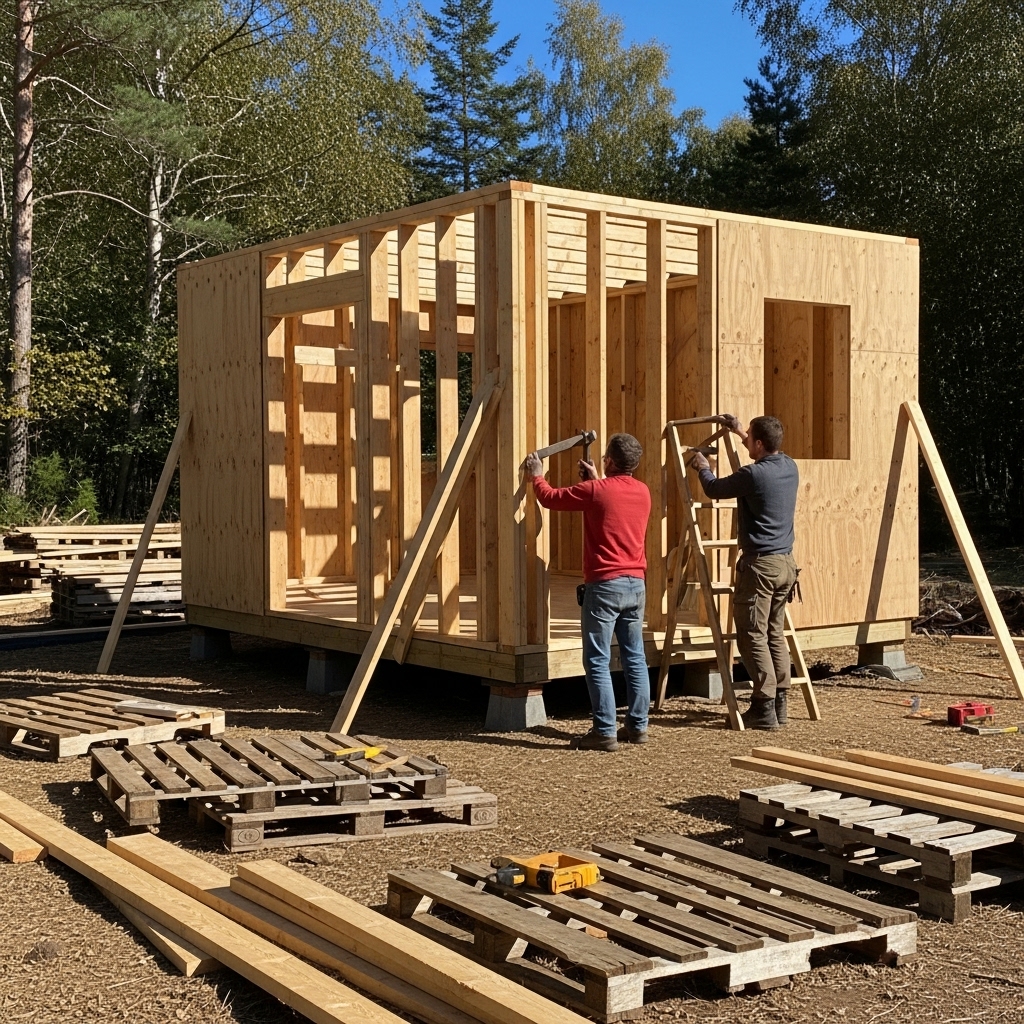
🌄 Introduction
Tired of rent, bills, and the hustle of city life? You’re not alone. More and more people are making the switch to off-grid living — not just for freedom, but for financial independence and peace of mind. And the best part? You don’t need a fortune to do it.
In this guide, we’ll walk you through how to set up an entire off-grid lifestyle for less than $10,000 — including shelter, power, water, and even food. Yes, it’s possible. Thousands are doing it. Now it’s your turn.
🗺️ Step 1: Find Cheap (or Free) Land
✅ What to Look For:
- Rural counties with no zoning laws
- Off-grid communities selling land by the acre
- Online auctions (Tax Lien Sales, eBay Land)
- Owner-financed land (low down payments)
💡 Bonus Tip:
Search Facebook groups like “Cheap Off Grid Land” or websites like:
- LandWatch.com
- CheapLand.com
- Craigslist > Real Estate > “By Owner”
💰 Cost: $0–$2,000
You can even lease or rent land for free in exchange for maintenance or caretaking.
🏠 Step 2: Build a Shelter Under $3,000
Top Budget Options:
- Tiny House on Skids
- Converted Shipping Container
- Shed-to-Home Kit
- Reclaimed Wood Cabin
- Earthbag or Cob House (great for dry climates)
🧱 What You’ll Need:
- Framing lumber or pallets
- Metal roofing or reclaimed shingles
- Insulation (recycled or foam board)
- Windows & doors (salvaged is fine)
- Hand tools (or borrow from neighbors/community)
💰 Cost: $2,500–$3,500
🔋 Step 3: Off-Grid Power for Under $1,000
Budget Solar Setup:
- 2x 100-watt solar panels
- Charge controller
- Deep cycle batteries (or recycled LiFePO4)
- 300W inverter (for small electronics)
💡 Tips:
- Power LED lights, phones, laptops, USB fans
- Use propane for heating or cooking
- Run heavy loads (like fridges) off a generator if needed
💰 Cost: $700–$1,000
💧 Step 4: Water Catchment & Filtration
Options:
- 55-gallon food-grade barrels
- Rain gutters from metal roofing
- Gravity-fed faucet or pump
- Berkey-style DIY water filter (charcoal + gravel)
💰 Cost: $200–$500
🚽 Step 5: Composting Toilet & Greywater Drain
DIY Toilet Plan:
- 5-gallon bucket with toilet seat
- Sawdust or coconut coir cover material
- Outdoor compost bin or pit
Greywater Drain:
- PVC pipe from sink to a gravel-filled soak pit
- Filter with a grease trap
💰 Cost: $150–$400
🥕 Step 6: Grow Your Own Food
Start With:
- Raised beds using scrap wood
- 3–5 key crops: potatoes, kale, beans, tomatoes, squash
- Rainwater or greywater irrigation
- DIY greenhouse with PVC & plastic
💰 Cost: $200–$400
You can grow 50–60% of your diet in one season with smart planning.
🧰 Step 7: Tools & Supplies
Must-Have Tools:
- Hammer, hand saw, screw gun
- Level, measuring tape
- Tarp, buckets, rope
- Duct tape, nails, screws
💰 Cost: $500–$1,000
Buy secondhand, borrow, or trade tools when possible.
📊 Budget Recap Table:
| Item | Cost Estimate |
|---|---|
| Land | $0–$2,000 |
| Shelter (Tiny Home/Shed) | $2,500–$3,500 |
| Solar Setup | $700–$1,000 |
| Water Catchment & Filter | $200–$500 |
| Compost Toilet + Greywater | $150–$400 |
| Gardening/Food System | $200–$400 |
| Tools & Materials | $500–$1,000 |
| TOTAL | $4,250–$9,800 |
🏡 Real Off-Grid Case Study: Meet Lisa
Lisa, a 29-year-old from Oregon, bought half an acre of forest land for $1,500. She built a 12×20 shed cabin from salvaged wood, installed a basic solar system, and uses a composting toilet and rain barrels. Her entire setup cost just $8,200 — and she now lives debt-free, off-grid, and grows 70% of her food.
“Freedom doesn’t come from owning more. It comes from needing less.” — Lisa
🆓 Free Download: Budget Off-Grid Starter Kit
Download our Off-Grid Starter Checklist PDF that includes:
- 25 essentials under $25
- Where to find free materials
- Off-grid tools & setup map
[Click here to download] (Link Placeholder)
💬 Final Thoughts
Living off the grid doesn’t require a six-figure salary — just a DIY spirit and a clear plan. If you’ve ever dreamed of freedom, nature, and a life without bills, this is your sign to go for it.
📣 What Would You Build First?
Let us know in the comments — tiny house, solar kitchen, or food forest?
👇 Join the off-grid discussion and share your story.